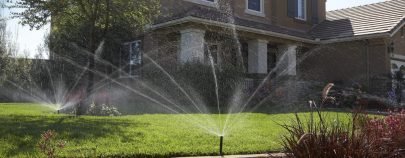
Category - Maintenance
Effective maintenance is crucial for sustaining the optimal performance of an irrigation system. It ensures its longevity, and promoting water conservation. A well-executed maintenance routine involves several key practices.
Regular Inspections
Consistent inspections are the foundation of effective maintenance. Regularly checking the entire system for leaks, damaged components, or signs of wear is essential. Identifying issues early on allows for prompt repairs, preventing potential water wastage and system inefficiency.
Cleaning and Clearing
Over time, natural origin debris can accumulate in various components of the irrigation system. Periodic cleaning of filters, nozzles, and emitter heads is crucial to maintain unrestricted water flow. It also prevents clogs that could compromise the system’s efficiency.
Adjustment of Sprinkler Heads
Ensuring that sprinkler heads are properly aligned and adjusted is essential for achieving even water distribution. Misaligned or clogged sprinkler heads can lead to uneven coverage, potentially resulting in overwatered or underwatered areas.
Controller Checks
Functioning as the brain of the system, the irrigation controller dictates when and how much water is distributed. It is vital to regularly check the controller to guarantee accurate scheduling, particularly in light of seasonal changes in water requirements. This proactive approach ensures that the irrigation system adapts effectively to varying environmental conditions, promoting efficient water usage throughout the year.
Sensor Calibration
If the irrigation system is equipped with sensors, such as rain sensors or soil moisture sensors, ensuring their accuracy is crucial. Calibrating these sensors is essential for their proper functioning. Well-calibrated sensors play a key role in enhancing the system’s responsiveness to environmental conditions. This, in turn, helps prevent overwatering during rain or adjusts the irrigation schedule based on variations in soil moisture levels.
Winterization
In regions susceptible to freezing temperatures, winterization becomes a critical step in safeguarding the system from potential damage. This process involves draining water from pipes and systematically shutting down the system to prevent freezing, subsequently averting the risk of burst pipes.
By seamlessly integrating these maintenance practices into a routine schedule, the efficiency of the irrigation system is maximized, and potential issues are proactively addressed. This approach not only guarantees the system’s longevity but also actively contributes to responsible water management and the overall health of the landscaped area.







